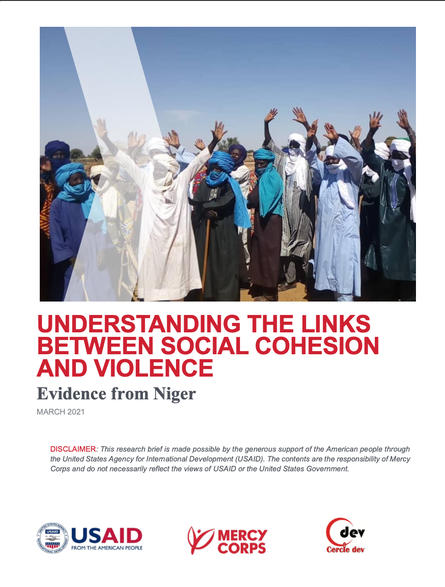
This research study presents an analysis of baseline data from Mercy Corps’ USAID-funded Preventing Violent Extremism Actions through increased social cohesion Efforts (PEACE) program, implemented in the Tillabéri region of Niger. The baseline survey collected data on several dimensions of social cohesion and respondents’ perceptions of, and experiences with, conflict and violence. In addition to horizontal cohesion (between groups and communities), the survey also explored vertical cohesion (between communities and the government). Understanding these linkages has implications for when, where, and how practitioners should engage in social cohesion programming - and what aspects they should focus on.